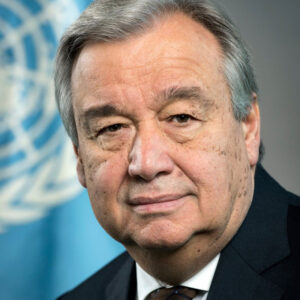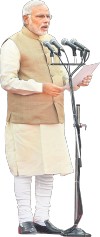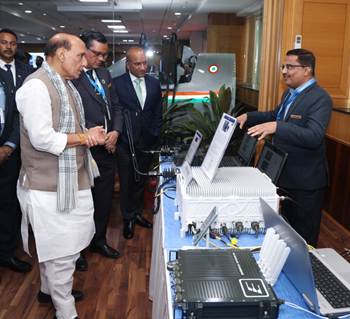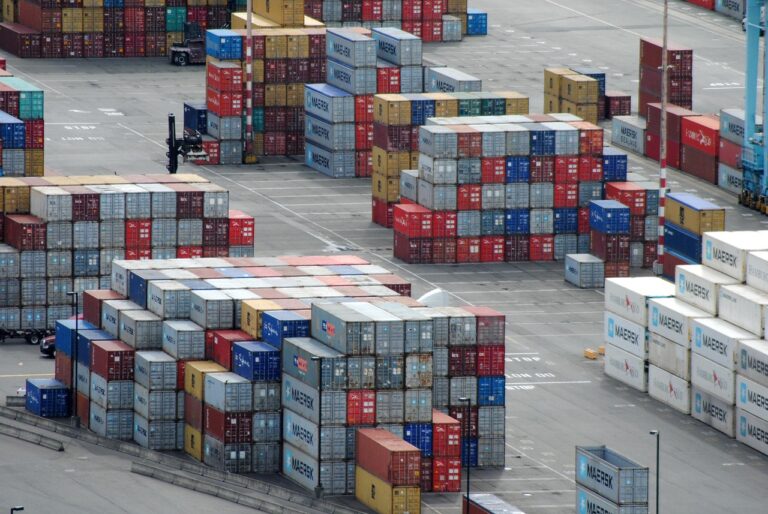
[the_ad_placement id=”content-placement-after-3rd-paragraph”]
ECOSOC commemoration of UN’s 75th Anniversary
– globalbihari bureau

New York: United Nations Secretary-General António Guterres called upon member states to empower the Economic and Social Council (ECOSOC) “to evolve and change” with the times. Guterres was addressing the high-level segment of ECOSOC on the theme “Multilateralism after COVID-19: What Kind of UN Do We Need at the 75th Anniversary?”, here on Friday.
“In my opinion, the Council should connect with a much wider global audience and develop a strengthened relationship with its subsidiary bodies and with the governing boards of United Nations development system entities, with a clearer division of labour with the General Assembly,” he said.
The Economic and Social Council is key in securing the active engagement of the decision-makers who are critical to financing implementation of the 2030 Agenda. “And it must ensure that its stakeholder engagement mechanisms become more agile, empowering and representative,” he said.
At this pivotal moment, with COVID-19 still spreading, geopolitical tensions rising and the cry for racial justice, social justice and climate justice ever more urgent, we have a responsibility to respond to the anxieties, fears and hopes of the people we serve.
A revitalized Economic and Social Council at the heart of a networked, inclusive and effective multilateralism can help us to do so. This is the moment for the international community to heed the current wake-up call and move ahead with a collective response in unity and solidarity.
Stating that the socioeconomic impacts of the COVID-19 pandemic will likely unfold for years to come, he felt that as UN’s “mothership” for sustainable, inclusive development, the Economic and Social Council could do much to advance the needed cooperation. He pointed out that with the high-level political forum, the Council was home to the foremost annual gathering of Governments and partners on implementation of the 2030 Agenda for Sustainable Development.
He said: “With the Forum on Financing for Development, the Council convenes a range of actors around the most comprehensive and legitimate financing framework we have: The Addis Ababa Action Agenda. With the operational activities segment, the Council serves as both an effective oversight body of the United Nations development system and a catalyst for a more effective and cohesive development response at the country and regional levels. With the humanitarian affairs segment and other forums, the Economic and Social Council can ensure a step change in our ability to operate across pillars to respond to complex situations on the ground. And by providing dedicated spaces for engagement with young people and ensuring the participation of many other stakeholders, the Economic and Social Council is showing its commitment to being an inclusive United Nations body.”
He said the COVID-19 pandemic crisis now risks halting and reversing progress on poverty eradication, food security, gender equality and other Sustainable Development Goals.
“Indeed, the pandemic has underscored the world’s fragilities not just in the face of a health emergency, but in confronting the climate crisis, lawlessness in cyberspace and the still-very-real risks of nuclear proliferation. As we strive to respond and recover, we must re-examine many longstanding assumptions and reconsider the approaches that have led us astray. We must also re-imagine the way nations cooperate,” he said.

The Secretary-General reasserted that the pandemic had underscored the need for a strengthened and renewed multilateralism based on powerful ideals, and trust. “We need a networked multilateralism, in which the United Nations and its agencies, the international financial institutions, regional organizations and others work together more effectively with stronger institutional links. And we need an inclusive multilateralism, drawing on the critical contributions of civil society, business, foundations, the research community, local authorities, cities and regional Governments,” he said. According to him, this, in turn, would help lead to an effective multilateralism with the mechanisms it needs to make global governance work where it is needed.
Indian Prime Minister Narendra Modi, in his keynote address virtually, asserted that the path to achieve sustainable peace and prosperity was through multilateralism. However, he said, multilateralism needed to represent the reality of the contemporary world. “Only reformed multilateralism with a reformed United Nations at its center can meet the aspirations of humanity,” Modi said and urged member nations pledge to reform the global multilateral system. “The United Nations was originally born from the furies of the Second World War. Today, the fury of the pandemic provides the context for its rebirth and reform. Let us not lose this chance, he said. Referring to India’s election as a non-permanent member of the UN Security Council, Modi said India had been elected to the Security Council at a “very important time”.
“With our deep commitment to maintaining global harmony, to improving socio-economic equity , and to preserving nature’s balance, India will play its role in full support of the UN agenda,” he said.
[the_ad_placement id=”sidebar-feed”]






bookmarked!!, I like your blog!